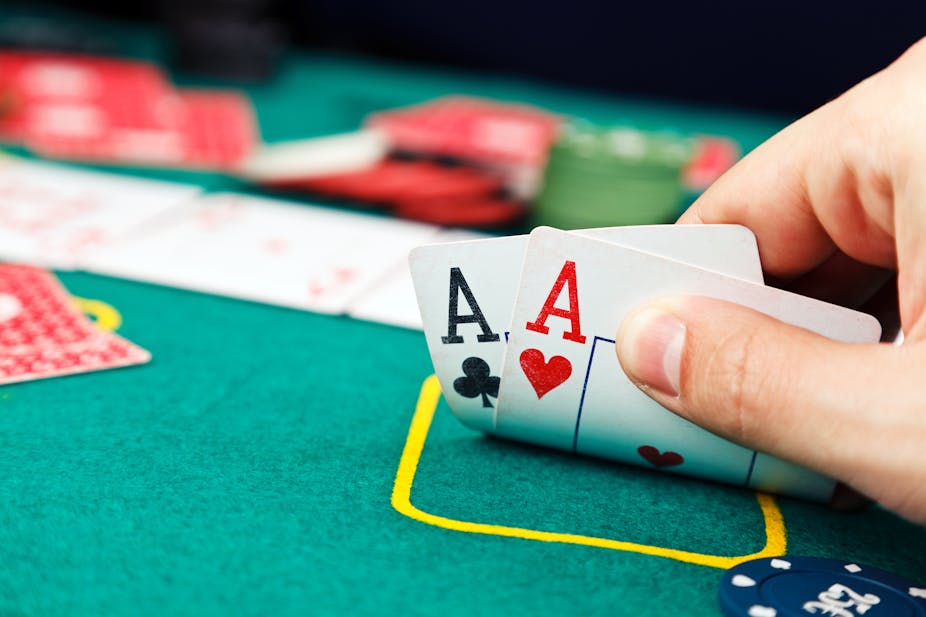What is a Poker Run?

A poker run is an entertainment and fun event where participants travel between checkpoints to collect playing cards, aiming to build the best poker hand. Unlike a race, it is about enjoying the journey, often on motorcycles, boats, or bikes, while following a set route.
At each stop, players draw a card, and the person or team with the strongest hand at the end wins. These events often support charities, combining adventure with community spirit. It is different from poker online because no skills are needed, making it accessible to everyone.
The Basics of a Poker Run
A Poker Run follows a simple concept where participants travel to five or more checkpoints along a designated route. At each stop, they draw a card or receive an envelope containing a card.
Participants must visit all stops within the specified time frame, though it’s not a race. The cards remain unopened until the final checkpoint, where all hands are revealed. The person with the best poker hand wins the event and usually receives a prize.
Most Poker Runs charge an entry fee, typically around $10 per hand, with the option to purchase additional cards!
History and Evolution of Poker Runs
Poker Runs originated as social gatherings for motorcycle club members seeking organized activities that promoted camaraderie and entertainment. Poker Run is not for business purposes. Over time, these events evolved from simple get-togethers to structured charity fundraisers.
According to records, the largest Poker Run took place in 2009, with 2,136 participants benefiting the Fallen Firefighter Survivors Foundation. Another notable event occurred in 2012 in Ottawa, Canada, where 586 motorcyclists raised money for Prostate Cancer Research. Today, Poker Runs have expanded beyond motorcycles to include boats, snowmobiles, ATVs, and even horses or small aircraft.
How Poker Runs Work?
Participants in a Poker Run register and receive a numbered poker chip or identifier before the event begins. At each checkpoint, they present their identifier and draw a card or collect a sealed envelope.
The card number is typically recorded on the participant’s scorecard or written on the back of the card itself. Participants must visit all designated stops, usually five, corresponding to a five-card poker hand.
After completing the route, all cards are submitted to event officials, who determine the winning hand based on standard poker rankings. The event includes a specific timeframe, often several hours, allowing participants to enjoy the journey.
Most Poker Runs follow standard poker hand rankings. Royal flush is the highest. After that is the straight flush, 4-of-a-kind, full-house, and so on. In case of tied hands, participants might split the winnings or draw an additional card to determine the winner.
Some events allow participants to purchase additional cards to improve their hands for an extra fee. Event organizers typically provide clear instructions during a mandatory briefing before the run begins. Any tampering with cards results in disqualification. The rules aim to maintain fairness while maximizing fun and fundraising potential.
Types of Poker Runs
While motorcycle Poker Runs remain popular, boating Poker Runs have gained significant traction among water enthusiasts. The Lake Chelan Poker Run, for example, features boat owners traveling to five stops across the lake.
Other variations include off-road vehicles traversing forest trails, like the Super Dirt Poker Run at Capitol Forest, which attracted over 300 riders. Family-oriented events often include shorter routes for children, like the 2-mile kids’ course at the Shelton Valley Dart Poker Run. Some themed Poker Runs, such as the Skagit M/C Boob Run, focus on specific charitable causes like breast cancer research.
The Charitable Side of Poker Runs
Charity remains central to most Poker Run events, with proceeds typically benefiting community causes or foundations. Entry fees, additional card purchases, and related activities like auctions or raffles generate funds for designated charities.
The Boeing Employees Motorcycle Club hosted a benefit Poker Run at Tahuya that attracted 470 riders, demonstrating the fundraising potential of these events. Some organizers, like Cascade Family M/C, donate 100% of net proceeds to worthy causes.
Final Words
Poker Runs have evolved from simple club activities to significant community events that blend recreation with philanthropy. Their appeal lies in combining the thrill of the journey with the excitement of card games and the satisfaction of supporting worthy causes. Whether by motorcycle, boat, or other means, these events continue to attract enthusiasts who enjoy the perfect mix of adventure, chance, and giving back to their communities.
